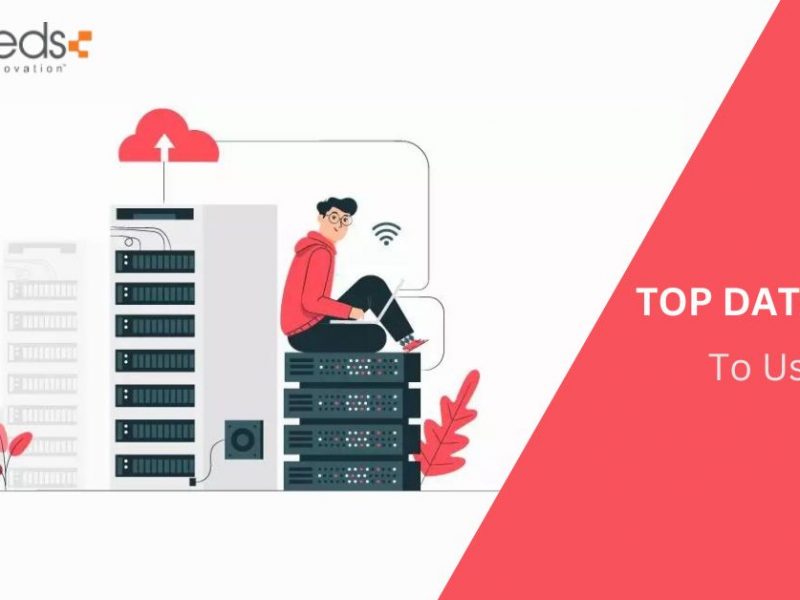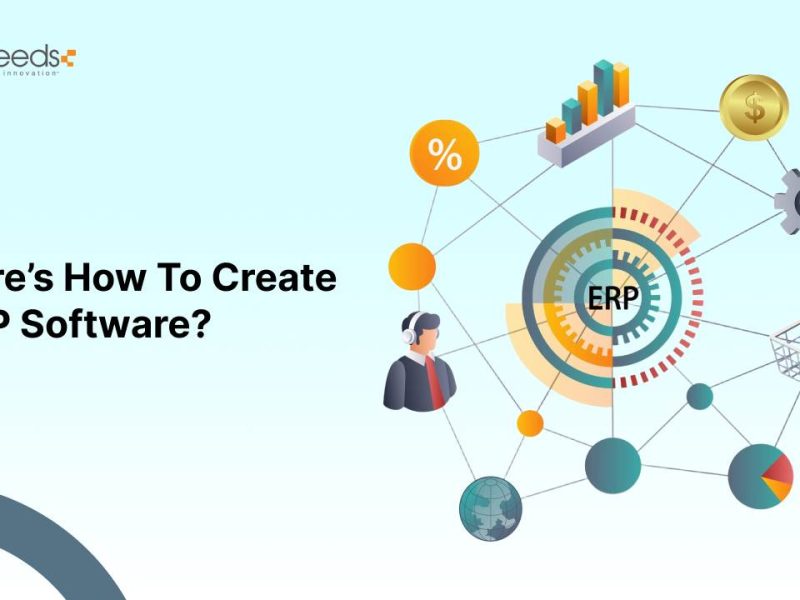After the coronavirus outbreak, there has been a massive rise in the health insurance industry. People have realized the importance and benefits of health insurance. With the digitization of every industry, people now prefer to browse, buy, or book services online through laptops, smartphones, etc., and health insurance is no exception. Here is a complete guide to you about all the necessary points of Health Insurance Software Development in 2024.
That’s the reason why many companies are looking for health insurance software development services. It has become a highly demanded solution that offers a plethora of benefits to the medical market sector. Also, the healthcare industry is itself getting digitized. Medical records, medical consultations, pharmacy buying, etc., all are leveraging digital solutions. Hence, health insurance software development has a lot of potential in the market.
In this article, we will go through the various aspects of health insurance software development, including its cost and key features. But first, let’s understand the basics.
What is Health Insurance Software?
Health insurance software is specially curated to manage and ease operations related to health insurance. It helps health insurance companies to streamline their processes, such as enrollment, claims processing, eligibility checks, billing, and customer service. There are various features in the health insurance software that facilitate and streamline the operations of health insurance. It also keeps all the involved parties, like patients, healthcare providers, and insurance companies, on the same page.
Market Statistics of Health Insurance Software:



As an entrepreneur, you must be wondering whether it is a great idea to opt for health insurance software development. Here are some market statistics to help you with:
a. The USA has the largest health insurance market, which is growing at an impressive CAGR of 8.1%.
b. The first company that develops health insurance software, Oscar, has over 1 million active members.
c. In the medical industry, health insurance is the main driving factor in its extraordinary expansion.
d. The global health insurance market has reached a value of $2.1 trillion in 2021. It is estimated to grow to $3.62 trillion by 2028 at a CAGR of 9.5%.
Types of Health Insurance Software:



After getting a basic understanding of health insurance software, let’s learn about the major types of health insurance software and their purposes.
a. Claims Processing Software:
The first health insurance software type is claims processing software. Almost every hospital and health insurance company encounters hundreds of claim requests on a daily basis. A claims processing software will streamline the activities involved in processing claims. It could intake claims from various sources, check the accuracy of claim information, and ensure that the claim is within the policy’s coverage limits.
It will also perform eligibility verification, benefits determination, payment processing, and reporting & analytics.
b. Agent Management Solution:
As the name indicates, this solution would be curated to streamline the activities of insurance agents. It will act as a centralized platform to track the performance of agents, manage their commissions, and maintain compliance with all the regulations. It will help in onboarding new agents, monitoring their sales activities, and automating the calculation of their commissions and other perks.
Furthermore, it will guarantee that agents comply with industry regulations while producing comprehensive reports and analytics of agents’ performance.
c. Policy Management Software:
The role of policy management software is to design and govern policies. It includes tasks like policy issuance, guidelines operation, requests monitoring, billing, and accounting. It provides a central platform for checking the information related to policies, any changes, and other related information.
d. Lead Management CRM:
The health insurance industry doesn’t employ a generic CRM but a specialized lead management CRM. It comprises a database, sales channel, insights delivery, and reports generation. It helps in turning newly attracted leads into dedicated customers. A specialized CRM could meet health guidelines and regulations due to the private medical data processing.
Benefits of Health Insurance Software Development:



As people are becoming highly aware of the importance of health insurance and the comfort of the digital industry, health insurance software combines both of these to provide a lot of benefits. Here are the major benefits of health insurance software development:
a. Accessibility and Convenience:
With health insurance software, all the involved entities have access to the information at their fingertips. It allows insurance companies to quickly check patients’ policy coverage, health reports, and much more. Patients can also check the terms and conditions of the policies along with other necessary information.
b. Streamlined Communication:
The health insurance software can facilitate communication among users, insurance providers, healthcare providers, agents, etc. All these entities could easily send and receive messages, claims, and documentation, minimizing the need for phone calls and physical paperwork.
c. Smart Medical Assist:
Health insurance software helps patients find the most suitable medical institutions by providing information about registered healthcare institutions. It will be an intelligent solution that will aid in the discovery of clinics and hospitals that fit consumer needs while also automating the selection process with an incorporated filtering mechanism.
d. Minimized Paperwork:
Users no longer have to worry about printing claim records and other important paperwork thanks to health insurance applications. Users may securely save and retrieve all necessary information anywhere and at any time, thanks to the ease of use of mHealth and insurance apps.
e. Personalized Interactions:
A health insurance software will allow to cater to each customer in a personalized way. It will collect the in-depth details of the customized behavior patterns of the customers and deliver the experience accordingly.
Key Features of Health Insurance Software:



With the changing technology, the health insurance software must have all the top features that will improve its usability. The features should facilitate easy access to insurance details, claims processing, and much more. Here are the top features of health insurance software:
a. Comparison of Insurance Plans:
The users should be able to get clarity on insurance plans and distinguish between different insurance plans. Good insurance software lets users compare different plants without any trouble. It will distinguish on the basis of benefits, sum insured, costs, diseases covered, claim speed, etc.
b. Integration with Healthcare Providers:
The health insurance software should work closely with healthcare providers, and for that, it must be integrated with all popular and top healthcare providers. It must provide the latest updates and complete care. The users should be able to schedule visits, check their health records, and talk directly to the healthcare providers.
c. Claim Management:
Although no customer wants to be put in a situation in which he has to get a healthcare insurance claim if it happens, ensure that it goes smoothly. The claim process in the healthcare insurance software should capture the medical records, claim policy registration, and other necessities for claim management.
d. Customer Portal:
Policyholders can access their information over the internet via a user-friendly tailored customer portal. They can submit claims, see policy information, and track their status. The consumer experience has increased, and this element is easy. Custom insurance software development ensures that the portal meets your company’s unique requirements and identity.
e. Billing and Payments:
This module processes billing and premium payments. It tracks payments successfully and accepts a variety of payment methods. It is important to keep up with cash flow, which necessitates accurate billing and timely payment collection. Offshore software development services can assist in integrating this module with existing financial systems.
How much does it cost to develop a Health Insurance Software?



There is no one-size-fits-all formula to determine the cost of health insurance software development. The development cost can vary based on a lot of factors. The major factors that impact the costs are:
Software Complexity – MVP, Advanced, or Enterprise Edition
Platform Selection – Android, iOS, Web, etc.
Location of Software Development Company – Development costs vary in different countries
Features and Functionalities – Advanced Features increase the costs
UI/UX – A simple UI would be less costly vis-à-vis a captivating UI
Maintenance and Upgrades
Third-party Integration
Security and Compliances
Among all these factors, the biggest impact on the development costs would be the location of the Pharmacy Management software development company. A company located in North America or Central Europe will have much higher hourly rates vis-à-vis a company located in Southeast Asian countries like India, Malaysia, or Singapore. However, the development quality would be almost the same. The hourly costs in the North American region can lie between $70-90 per hour, while in India, the hourly rate is $25-40 per hour. Thus, there will be a huge difference in the cost of the whole project.
To give you a rough figure, a health insurance software development with standard features will cost you around $40,000-$70,000. An advanced or complex software cost will go beyond $90,000. Remember, the more features and complexity software you want to develop, the higher its costs will be. Here’s a breakdown of the health insurance software development cost and timeline based on the complexity:
| App Complexity | Average Duration | Cost Estimation |
| Simple App | 12-18 weeks | $40,000-$70,000 |
| Medium Complex App | 24-36 weeks | $90,000-$120,000 |
| Advanced Complex App | +36 weeks | +$150,000 |
How to develop health insurance software?



Here is the 7-step process to develop health insurance software:
1. Analyze the requirements of your target audience:
Your development journey begins with defining your software idea and what you want to achieve with it. As we mentioned above, there are several types of healthcare insurance software. Thus, you have to determine which one you want to develop. Not only this, you should also have clarity about the requirements of your target audience.
To give you an idea, here are the most common issues that people face in the traditional insurance model – a lot of paperwork and no coordination between healthcare providers and insurance companies. So you can conduct market research and identify your goals and preferences.
2. Analyze your competitor’s strategies:
After understanding what your target audience wants, you should now proceed with your competitor’s research. Before entering the market, you must know with whom you are competing.
It will give you a roadmap of how they are performing and how you can make a difference. Keeping a close eye on your competitors will help you know the current market trends.
3. Find a dedicated software development company:
After the research time, it is time to find your technical partner. You should find a software development company with prior experience with similar requirements. Check out their portfolio, team profile & experience, and reviews or feedback to see if they are a good fit for your project or not.
Make a list of 10-15 firms and choose the one that meets your needs. Partnering with a top health insurance software development company provides you access to designers, developers, project managers, and testers who are eager to turn your business idea into working software.
4. Decide the features and functionalities:
Now, you have to decide the features and functionalities that you want to implement in the software. If you want to test your idea first, then we suggest going for MVP (Minimum Viable Product) development. In MVP, you launch the product with only the necessary features, and after getting a positive response from your users, you can add advanced features at a later stage.
5. Creating a better UI & UX of the software:
Creating a captivating UI & UX is pivotal for the healthcare industry, as the user base prefers a clean and easy-to-use UI. Also, most of the users could be people 40+ years of age who may not be highly tech-savvy. Thus, the UX of the app should be easy to navigate and use.
According to Forrester, a better user experience improves the conversion rate by 40%.
6. Create a Prototype:
As we mentioned above, before developing fully-fledged software, it is recommended that a prototype or MVP version be developed.
Developing health insurance software is expensive as there are high chances that the software is developed and doesn’t meet the requirements of your user base. Here are a few reasons why developing an MVP or prototype is a gold mine for your health insurance business:
· The prototype development will not make you regret it at later stages as you can know the exact reason why users do not like your software.
· Developers can get instant user feedback and make necessary modifications as and when required.
7. Perform the software testing:
Testing is necessary before releasing the app to your users. It doesn’t matter how qualified the development team is; there are certain issues that always need to be fixed. Testing is necessary before releasing the app to your users. It doesn’t matter how qualified the development team is; there are certain issues that always need to be fixed. This is where software testing services play a crucial role in ensuring the quality and reliability of your app.



Wrapping Up:
Developing health insurance software is a challenging process as it requires a lot of time, effort, domain knowledge, and several other aspects. With the changing technology aspects and requirements, it is best to outsource your project to a company with relevant prior experience.
In this article, we have gone through several aspects of the health insurance software development. At Ebizneeds, the best software development company in India, we can develop a health insurance software meeting of every type and with advanced features & captivating UI & UX. Let us know your requirements.



Naveen Khanna is the CEO of eBizneeds, a company renowned for its bespoke web and mobile app development. By delivering high-end modern solutions all over the globe, Naveen takes pleasure in sharing his rich experiences and views on emerging technological trends. He has worked in many domains, from education, entertainment, banking, manufacturing, healthcare, and real estate, sharing rich experience in delivering innovative solutions.


